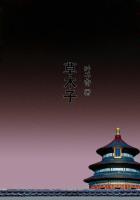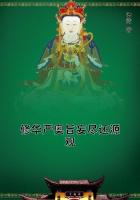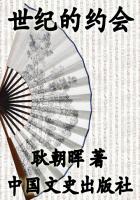"No language, indeed, can come up to the splendor of that magnificent display; . . . no one who did not witness it can form an adequate conception of its glory. It seemed as if the whole starry heavens had congregated at one point near the zenith, and were simultaneously shooting forth, with the velocity of lightning, to every part of the horizon; and yet they were not exhausted--thousands swiftly followed in the tracks of thousands, as if created for the occasion."--F. Reed, in the Christian Advocate and Journal, Dec. 13, 1833. " more correct picture of a fig tree casting its figs when blown by a mighty wind, it was not possible to behold."--"The Old Countryman," in Portland Evening Advertiser, Nov. 26, 1833.
In the New York Journal of Commerce of November 14, 1833, appeared a long article regarding this wonderful phenomenon, containing this statement: "No philosopher or scholar has told or recorded an event, I suppose, like that of yesterday morning. A prophet eighteen hundred years ago foretold it exactly, if we will be at the trouble of understanding stars falling to mean falling stars, . . . in the only sense in which it is possible to be literally true."Thus was displayed the last of those signs of His coming, concerning which Jesus bade His disciples: "When ye shall see all these things, know that it is near, even at the doors." Matthew 24:33. After these signs, John beheld, as the great event next impending, the heavens departing as a scroll, while the earth quaked, mountains and islands removed out of their places, and the wicked in terror sought to flee from the presence of the Son of man.
Revelation 6:12-17.
Many who witnessed the falling of the stars, looked upon it as a herald of the coming judgment, "an awful type, a sure forerunner, a merciful sign, of that great and dreadful day." --"The Old Countryman," in Portland Evening Advertiser, Nov. 26, 1833. Thus the attention of the people was directed to the fulfillment of prophecy, and many were led to give heed to the warning of the second advent.
In the year 1840 another remarkable fulfillment of prophecy excited widespread interest. Two years before, Josiah Litch, one of the leading ministers preaching the second advent, published an exposition of Revelation 9, predicting the fall of the Ottoman Empire. According to his calculations, this power was to be overthrown "in A.D. 1840, sometime in the month of August;" and only a few days previous to its accomplishment he wrote:
"Allowing the first period, 150 years, to have been exactly fulfilled before Deacozes ascended the throne by permission of the Turks, and that the 391years, fifteen days, commenced at the close of the first period, it will end on the 11th of August, 1840, when the Ottoman power in Constantinople may be expected to be broken. And this, I believe, will be found to be the case."--Josiah Litch, in Signs of the Times, and Expositor of Prophecy, Aug. 1, 1840.
At the very time specified, Turkey, through her ambassadors, accepted the protection of the allied powers of Europe, and thus placed herself under the control of Christian nations. The event exactly fulfilled the prediction.
(See Appendix.) When it became known, multitudes were convinced of the correctness of the principles of prophetic interpretation adopted by Miller and his associates, and a wonderful impetus was given to the advent movement. Men of learning and position united with Miller, both in preaching and in publishing his views, and from 1840 to 1844 the work rapidly extended.
William Miller possessed strong mental powers, disciplined by thought and study; and he added to these the wisdom of heaven by connecting himself with the Source of wisdom. He was a man of sterling worth, who could not but command respect and esteem wherever integrity of character and moral excellence were valued. Uniting true kindness of heart with Christian humility and the power of self-control, he was attentive and affable to all, ready to listen to the opinions of others and to weigh their arguments.
Without passion or excitement he tested all theories and doctrines by the word of God, and his sound reasoning and thorough knowledge of the Scriptures enabled him to refute error and expose falsehood.
Yet he did not prosecute his work without bitter opposition. As with earlier Reformers, the truths which he presented were not received with favor by popular religious teachers. As these could not maintain their position by the Scriptures, they were driven to resort to the sayings and doctrines of men, to the traditions of the Fathers. But the word of God was the only testimony accepted by the preachers of the advent truth. "The Bible, and the Bible only," was their watchword. The lack of Scripture argument on the part of their opponents was supplied by ridicule and scoffing. Time, means, and talents were employed in maligning those whose only offense was that they looked with joy for the return of their Lord and were striving to live holy lives and to exhort others to prepare for His appearing.
Earnest were the efforts put forth to draw away the minds of the people from the subject of the second advent. It was made to appear a sin, something of which men should be ashamed, to study the prophecies which relate to the coming of Christ and the end of the world. Thus the popular ministry undermined faith in the word of God. Their teaching made men infidels, and many took license to walk after their own ungodly lusts. Then the authors of the evil charged it all upon Adventists.












